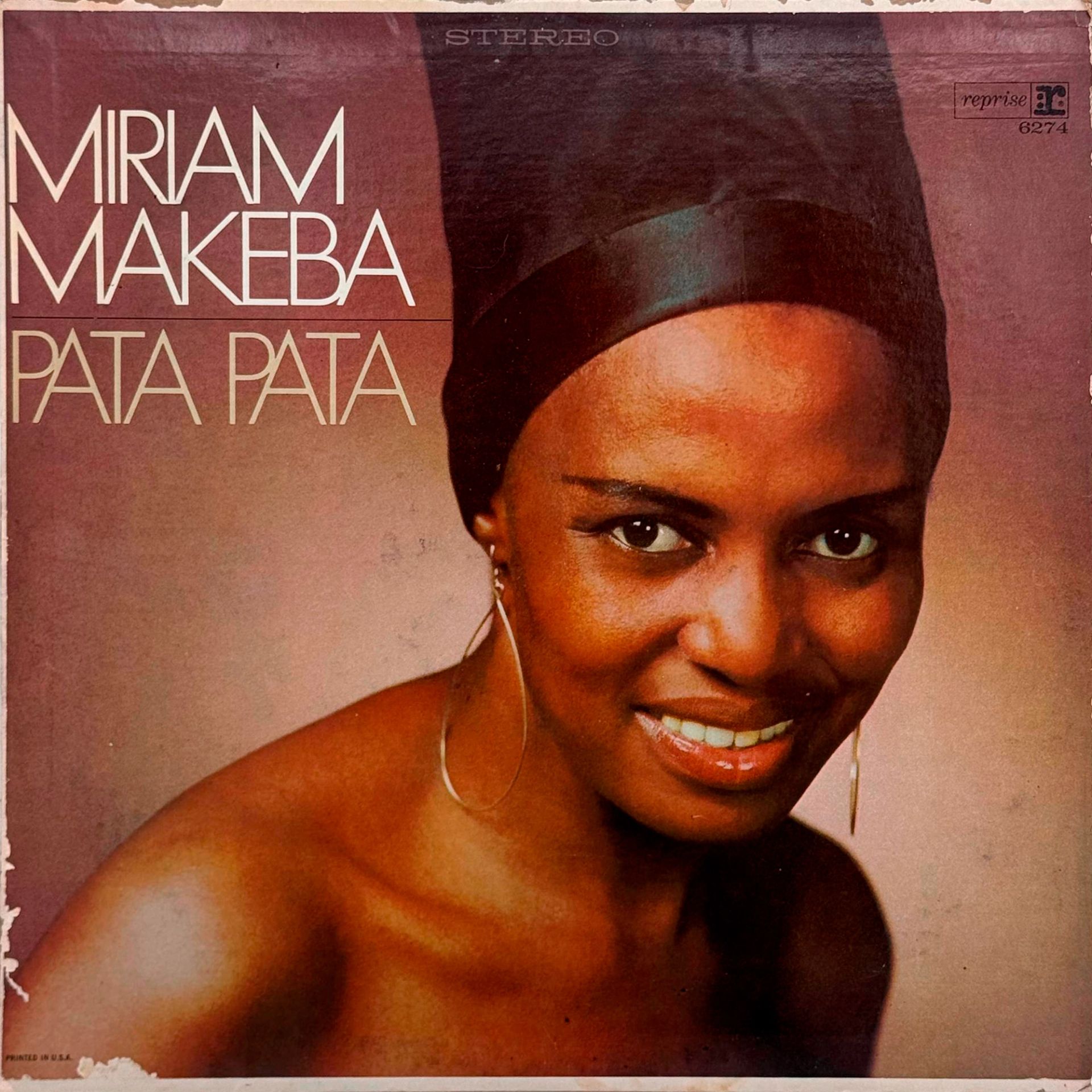Listen to this and more related tracks at the bottom of this column — or check out the full Sonic Kinships tracklist here.
Track 04: Miriam Makeba, Pata Pata (1967)
Miriam Makeba’s song “Pata Pata” is a jubilant anthem of spatial insurgency. The song emerged in Johannesburg’s Sophiatown, a neighbourhood later razed under the Group Areas Act. Apartheid reshaped urban and rural areas through racial segregation, extreme violence, bulldozers and blueprints, displacing entire communities into standardised housing blocks like those in Soweto and Langa. These so-called “model townships” were designed not as homes but as instruments of surveillance and control: stripped of amenities, and meant to restrict the possibilities of life. Within this geography of enforced order, shebeens — informal bars where music and interactions flourished — became sites of resistance. “Pata Pata,” with its infectious call to dance, translated this subversive energy into sound: a cartography of pleasure, mapped against the rigidity of apartheid planning.
Makeba herself embodied the precarious politics of sound. After she condemned apartheid before the United Nations, the South African government revoked her passport, forcing her into exile. Diaspora became her medium. Performing in New York’s concert halls across newly independent African capitals, and eventually in Conakry and the Pan-African movement, she turned performance into infrastructure. Her fame functioned as what Samia Henni describes as the “architectures of decolonisation” — networks of migration, solidarity, and defiance that countered the crumbling of Western empires and the persistence of neocolonial extraction.
When “Pata Pata” was released internationally in 1967, it travelled further than the bulldozers ever could, circulating through radios, festivals, and record shops. Its joy unsettled colonial orders by insisting that sonic embodiments are, themselves, political. Françoise Vergès has argued that decolonisation is not merely a question of replacing flags but of reconfiguring life in all its forms — intimacy, gender, embodiment. “Pata Pata” exemplifies this reconfiguration: evenings of gathering and fleeting dances, of activism and disruption. Listening itself became architectural, a redistribution of presence when physical bodies were policed, brutalised and displaced through institutionalised violence.
"Listening itself became architectural, a redistribution of presence when physical bodies were policed, brutalised and displaced through institutionalised violence."
In Johan Grimonprez’s Soundtrack to a Coup d’État (2019), Makeba’s music, alongside that of Louis Armstrong, Dizzy Gillespie, Nina Simone, Abbey Lincoln, and many others, entwines with the stage politics of decolonisation and Cold War performance. The film traces the silencing and coordinated assassination of Patrice Lumumba, Congo’s first elected leader, by transnational powers and their attempts to erase his democratic vision and legacy. Archival footage, album covers, and live performances are spliced together like improvisational riffs, showing how music became the vehicle for stories that official channels sought to obscure. In this montage, Makeba’s presence resonates as a counter-archive: a voice that amplified the unspeakable, exposing how liberation was voiced.
“Pata Pata” resists capture. Its choreography smuggles Sophiatown’s memories into world circuits, transforming stages in Harlem, Paris, or Lagos into continuations of Johannesburg’s erased streets, and bodies. The joy in its rhythm is strategic — a refusal to vanish. Here the song aligns with Mabel Wilson’s observation that Black life, under regimes of spatial exclusion, continuously invents architectures of belonging through performance, ritual, and collective creativity. “Pata Pata” was a portable urbanism, a sonic monument carried in the body, enacted in dance, remembered in rhythm. Against the brutal monumental infrastructures of apartheid — pass laws, segregated trains, barracks-style housing, carceral institutions, necropolitics — Makeba’s voice built another monument: fluid, embodied, communal. “Pata Pata” testifies that joy is not a distraction from struggle but a form of it, carved into movement and sound, endlessly circulating across borders.
"'Pata Pata' was a portable urbanism, a sonic monument carried in the body, enacted in dance, remembered in rhythm."

Miriam Makeba, Pata Pata (1967)
Tracklist
You can listen to the songs accompanying this column below and the complete Sonic Kinships soundtrack here.
Bio
Ivan L. Munuera is a New York-based scholar, critic, and curator working at the intersection of culture, technology, politics, and bodily practices in the modern period and on the global stage. He is an Assistant Professor at Bard College; his research has been generously sponsored by the Princeton Institute for International and Regional Studies and the Canadian Centre for Architecture. In 2020, Munuera was awarded the Harold W. Dodds Fellowship at Princeton University. Munuera has presented his work at various conferences and academic forums, from the Society of Architectural Historians and the European Architectural History Network to Columbia GSAPP, Princeton University, Het Nieuwe Instituut, CIVA Brussels and ETSAM, among many others. He has also published widely, from the Journal for Architectural Education (JAE), The Architect’s Newspaper to Log and e-flux.





